"It’s a hard and costly process to move your whole family [to Sewanee]. When you’re trying to figure out how you’re going to support your kids, scholarships matter."
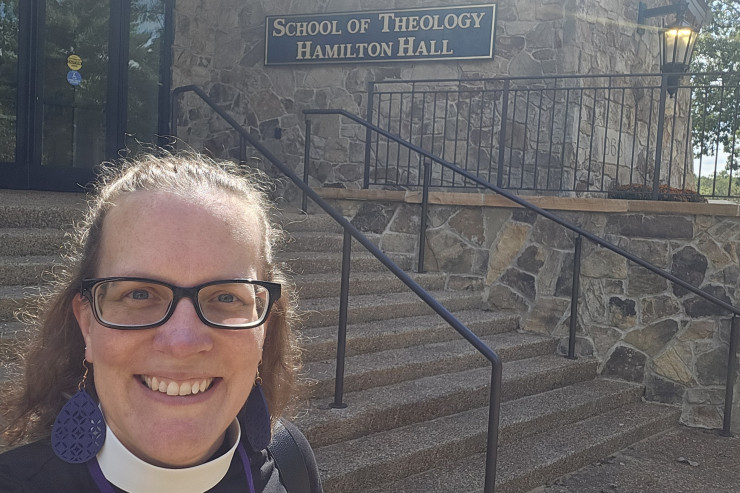
Many teenagers go through a period of rebellion, and the Rev. Alane Hart Osborne, T’24, says her adolescence was no different. “In college, I tried to leave the church,” she admits. “It lasted about a year, and then I found myself in an Episcopal church—and wound up serving on the vestry!” Growing up in Lexington, Kentucky, Osborne didn’t so much attend St. Michael’s Episcopal Church as wholly embrace it. At age 6, she joined the church choir, and soon after that, she became a regular reader at the lectern. She and her siblings also served as acolytes, while her mother participated in the altar guild, and her father was an usher. “I don’t remember a time of just sitting in the pews,” she says. “We did all the things.”
Reflecting on the busy Sundays of her youth, Osborne says she now appreciates how St. Michael’s engaged children in weekly services. “It made us know that we were valued as humans and that we were loved—that we were an equally worthy part of the church.” In her current role as a diocesan resident at Trinity Episcopal Church in Troy, Ohio, Osborne is now working to increase her parish’s youth programming, on top of the many other responsibilities she juggles. She also makes time to ease the path to ministry for Sewanee’s seminarians. Recently, she and her husband, Kyle Osborne, established the School of Theology’s first Cornerstone Scholarship.
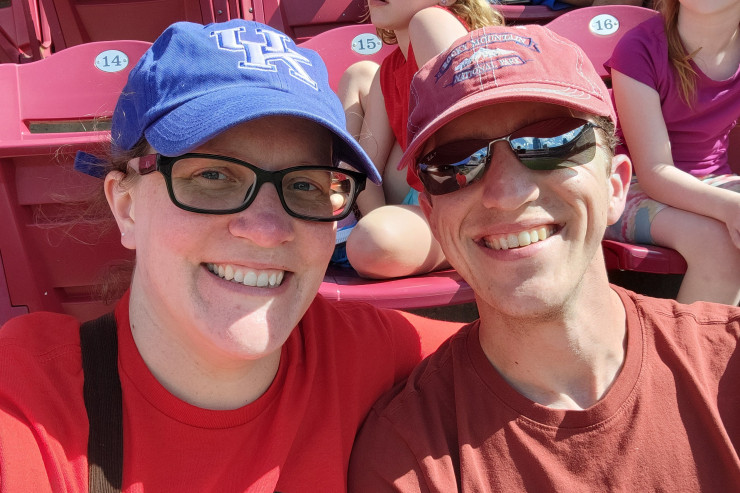
Like the College’s Cornerstone program, the seminary’s Cornerstone Scholarships are need-based and designed to significantly reduce their recipients’ financial burdens. The Rev. Casey Perkins, T’22, director of development for the School of Theology, says, “Sewanee is fortunate to be in a position where we can fully cover seminarians’ tuition fees, but we’re only able to do that thanks to our donors’ generosity.” He adds that Cornerstone Scholarships are critical in supporting seminarians’ day-to-day living expenses, such as housing, insurance, and groceries.
Osborne says she briefly aspired to a career in ministry at age 13, but, over time, her feelings changed. “I mainly wanted to be a priest because it was a position of authority in the church, and I loved the church,” she says. “I’m glad I didn’t follow that calling. I needed to do some growing up and learning about life.” Instead, Osborne honed in on her enthusiasm for music and desire to serve others. “My mom came to me one day with a piece of paper and said, ‘Hey, do you know there’s this thing called music therapy?’ It was basically everything I loved wrapped together.” In 2010, she graduated from the University of Louisville’s music therapy program, which, Osborne notes, was the only program of its kind in Kentucky at the time.
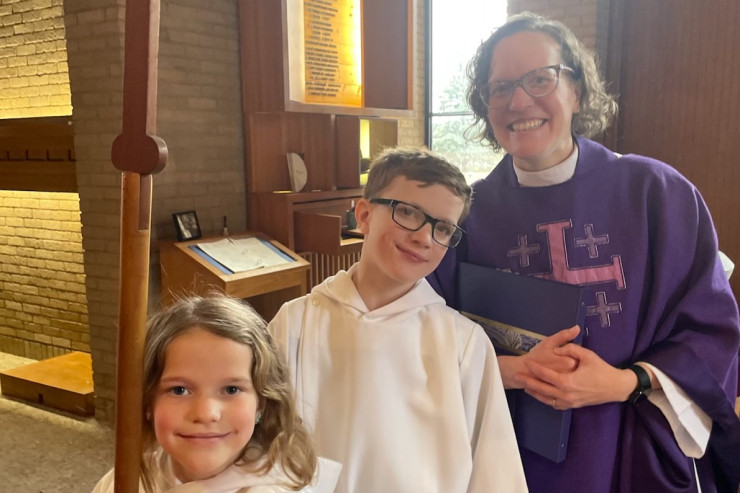
During her five years practicing music therapy in Ohio and Indiana, Osborne says, she cultivated listening and communication skills that later strengthened her ministry. She also picked up the ability to analyze people’s words and actions objectively—“to step back and say, ‘What’s causing this behavior on a grander scale?’” This type of critical thinking, she says, is helpful in church leadership. “Sometimes you have to stop and say, ‘[This conflict] isn’t actually about an error in the bulletin. It’s about a different thing.’”
Though Osborne enjoyed supporting her therapy clients, she says she eventually felt it was time to explore a new vocation. “What I found myself longing for was the ability to have spiritual conversations with people.” While participating in a Stephen Ministries retreat, she experienced a call to Christian service. “During prayer time, I heard the words, ‘Lead my people.’ I consistently heard those words until I finally started the [discernment] process.”
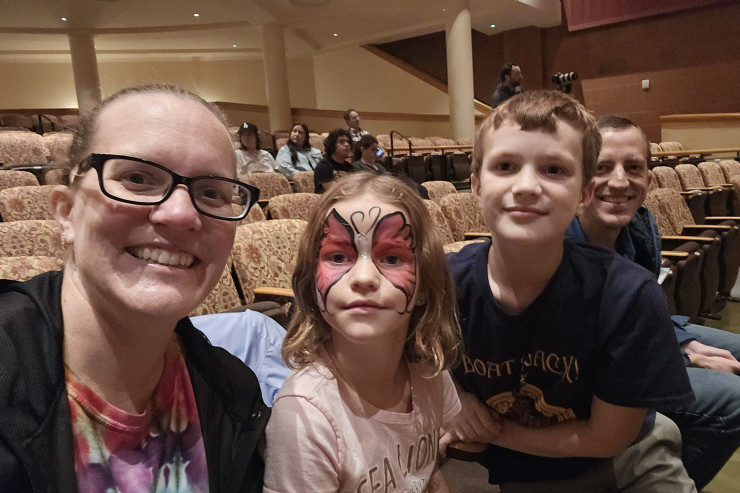
Figuring out what type of Christian leadership to pursue proved deeply challenging, Osborne says. “Finally, I went to my priest in tears and said, ‘I don’t know what I’m supposed to do with this call.” At the time, Osborne had recently given birth to her second child, and she’d stepped back from music therapy to focus on parenting. Her priest encouraged her to ask God for guidance. “She said, ‘Alane, have you asked God what [your call] means?’ And I said that I hadn’t.” Summoning the courage to seek God’s further counsel took “a solid three months,” Osborne says. “In meditation, I finally did ask, and I saw a collar.”
Another several years would pass before Osborne began applying to seminaries. She says she was drawn to Sewanee by the School of Theology’s strong academic reputation, as well as by the rural tranquility of the campus. In early 2020, she visited the University with her husband and two children. Her daughter, Fiona, was almost 3 years old and going through a shy phase, Osborne says. “They were clingy and would hide behind me.” Nevertheless, Fiona seemed instantly comfortable in Hamilton Hall. Seeing her toddler happily build a puzzle with School of Theology Director of Recruitment and Admission Walker Adams, T’14, was a good sign. In 2021, the Osbornes sold their home in West Chester, Ohio, and moved to the Mountain.
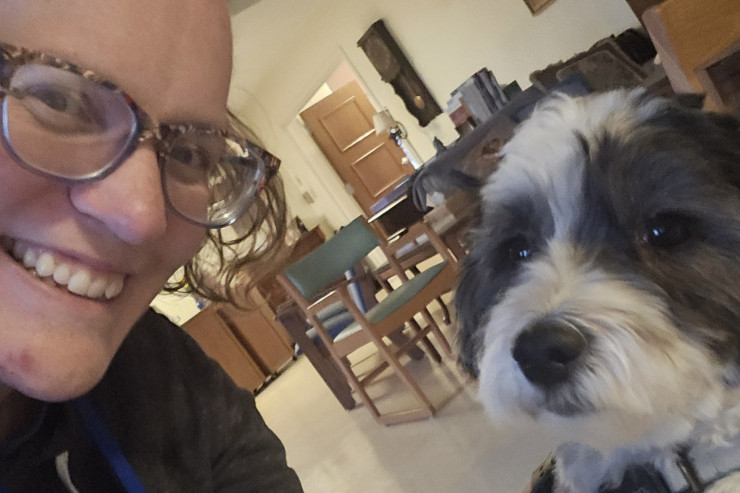
Settling her family into a new community wasn’t entirely easy, Osborne says, but empathy from the School of Theology’s faculty helped. In her first class with Bishop Frank A. Juhan Professor of Pastoral Theology the Rev. Dr. Julia Gatta, the topic of daily rituals came up, and Gatta noted that seminarians with children might need to skip the evening prayer service in order to tend to family routines. “I was like, ‘Oh, thank you,’” Osborne says. “I appreciated the acknowledgment that family is important. I always felt that at Sewanee.”
Osborne also thanks Gatta’s parish administration course for providing the practical tools needed to navigate church management. Every resource Gatta shared “had a theological piece behind it,” Osborne says. “Like, when you’re managing stewardship season—how you’d approach that from a biblical basis, in a loving and kind way that isn’t shaming.”
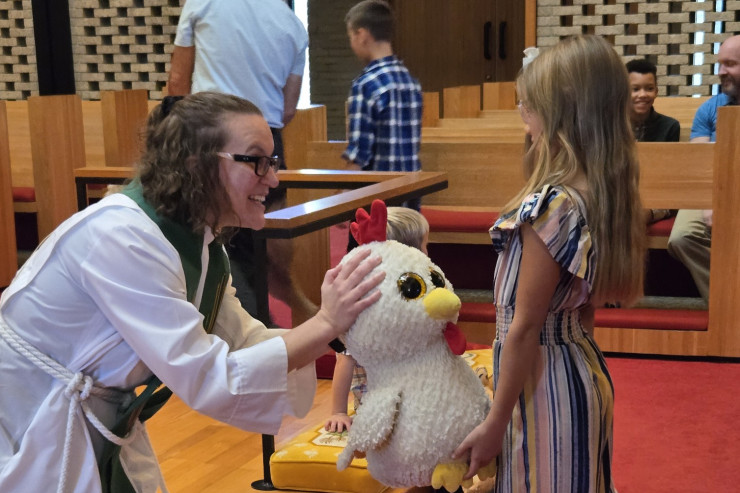
In 2022, Osborne was honored by School of Theology faculty with the Woods Leadership Award, which recognizes second-year seminarians who significantly enhance the quality of life at the University. In her final year at the seminary, she received the Bishop Alard Prize for Excellence in Liturgical Reading in Spanish. “[At Sewanee], the Spanish Eucharist fed my soul in a way that nothing else did,” she says, noting that she enjoyed the challenge of preaching in Spanish and creating Spanish translations of chants and hymns. “Learning about how another culture views liturgy shaped how I view it.”
Osborne says her Sewanee philanthropy is grounded in direct knowledge of how scholarship funding can remove obstacles for seminarians. “It’s a hard and costly process to move your whole family [to Sewanee],” she says. “When you’re trying to figure out how you’re going to support your kids, scholarships matter.” She also underscores the importance of being able to graduate from the University debt-free. “If I leave the seminary without debt, it means I can serve this small parish without having to think about paying off loans.”
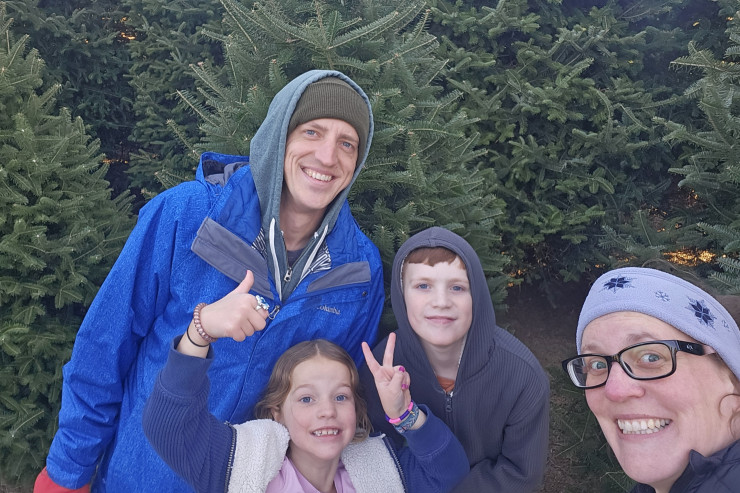
As a self-described introvert, Osborne says she came to the School of Theology with uncertainty about how she’d feel behind a pulpit—but she quickly grew to love the experience of preaching. Occasionally, there are Sundays when her sermons don’t seem to resonate with anyone in her congregation, she says, but then one parishioner will approach her and share that her words had a profound impact. “Then, I think, ‘OK, God somehow worked through me—gave me words and ideas, gave me what I needed to help somebody else. That’s really beautiful to me.”

